The Lumberjack’s Prayer
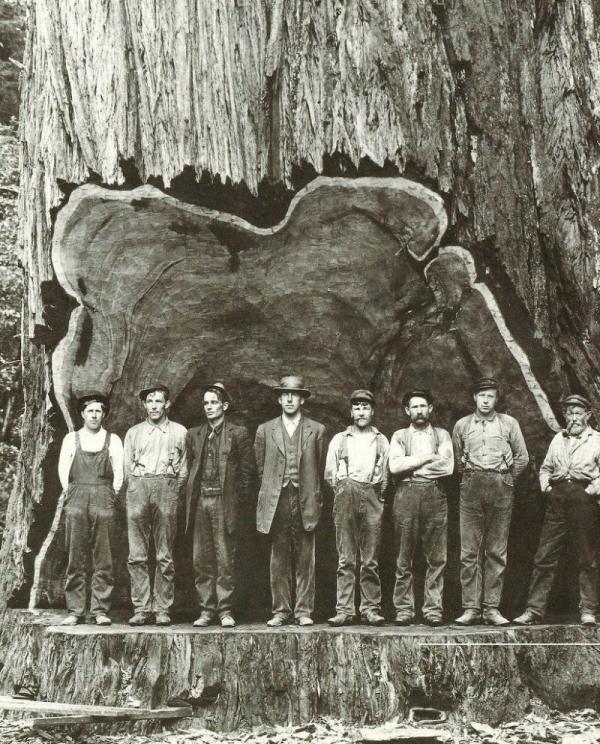
[1910s]
Scritta da Matti Valentin Huhta, aka T-Bone Slim (1880–1942), poeta, cantautore, vagabondo e agitatore sociale statunitense, di origine finlandese.
Sulla melodia dell'inno religioso "Praise God From Whom All Blessings Flow"
interpretata da Utah Phillips
Una canzone che circolava su foglio volante al prezzo di 10 cents. Il denaro raccolto serviva per finanziare le pubblicazioni gratuite dei Wobblies (IWW)
Testo trovato direttamente sul sito dell'Industrial Workers of the World
Lumberjacks often worked twelve hours a day, seven days a week, faced incredible dangers on the job, and lived under horrendous conditions. They were one of the most abused groups of workers in the early 20th century. The Industrial Workers of the World (IWW) was the only labor organization to pay any attention to workers in the lumber camps of the South and the Pacific Northwest. Although humorous in tone,... (continuer)
Scritta da Matti Valentin Huhta, aka T-Bone Slim (1880–1942), poeta, cantautore, vagabondo e agitatore sociale statunitense, di origine finlandese.
Sulla melodia dell'inno religioso "Praise God From Whom All Blessings Flow"
interpretata da Utah Phillips
Una canzone che circolava su foglio volante al prezzo di 10 cents. Il denaro raccolto serviva per finanziare le pubblicazioni gratuite dei Wobblies (IWW)
Testo trovato direttamente sul sito dell'Industrial Workers of the World
Lumberjacks often worked twelve hours a day, seven days a week, faced incredible dangers on the job, and lived under horrendous conditions. They were one of the most abused groups of workers in the early 20th century. The Industrial Workers of the World (IWW) was the only labor organization to pay any attention to workers in the lumber camps of the South and the Pacific Northwest. Although humorous in tone,... (continuer)
I pray dear Lord for Jesus' sake,
(continuer)
(continuer)
envoyé par Bernart Bartleby 11/1/2020 - 19:20
Harvest Land
anonyme
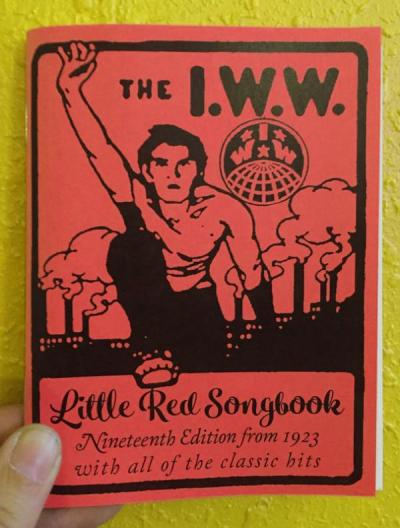
[191?]
Testo di autori non identificati, indicati con le sigle "TD and H.". Alcuni ne attribuiscono la paternità a Matti Valentin Huhta, aka T-Bone Slim (1880–1942), poeta, cantautore, vagabondo e agitatore sociale statunitense, di origine finlandese.
Sulla melodia del popolare gospel Beulah Land (1876)
Nel libretto di canti degli Wobblies dell'IWW (Industrial Workers of the World), il "Little Red Songbook", edizione del 1923.
In 1915, the Industrial Workers of the World (IWW) established a branch union, the Agricultural Workers' Organization (AWO). The AWO organized temporary harvesters, known as “harvest stiffs,” in railroad yards, migrant camps, and shelters. At its height in 1917 the AWO had more than 70,000 members, but like the IWW it was undermined by President Woodrow Wilson’s wartime attack on dissent and by local vigilante organizations. The AWO, like its parent organization,... (continuer)
Testo di autori non identificati, indicati con le sigle "TD and H.". Alcuni ne attribuiscono la paternità a Matti Valentin Huhta, aka T-Bone Slim (1880–1942), poeta, cantautore, vagabondo e agitatore sociale statunitense, di origine finlandese.
Sulla melodia del popolare gospel Beulah Land (1876)
Nel libretto di canti degli Wobblies dell'IWW (Industrial Workers of the World), il "Little Red Songbook", edizione del 1923.
In 1915, the Industrial Workers of the World (IWW) established a branch union, the Agricultural Workers' Organization (AWO). The AWO organized temporary harvesters, known as “harvest stiffs,” in railroad yards, migrant camps, and shelters. At its height in 1917 the AWO had more than 70,000 members, but like the IWW it was undermined by President Woodrow Wilson’s wartime attack on dissent and by local vigilante organizations. The AWO, like its parent organization,... (continuer)
The harvest drive is on again,
(continuer)
(continuer)
envoyé par Bernart Bartleby 11/1/2020 - 00:06
Mysteries of a Hobo's Life (the Job I Left Behind Me)
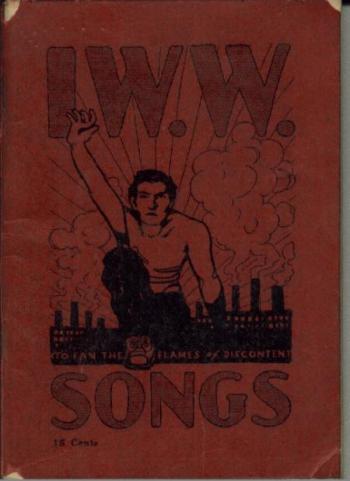
[1910]
Sulla melodia della tradizionale “The Girl I Left Behind Me”
Canzone scritta da Matti Valentin Huhta, meglio conosciuto come T-Bone Slim (1880-1940), nato in Ohio da immigrati finlandesi. Come il più celebre Joel Emmanuel Hägglund, immigrato svedese, meglio conosciuto come Joe Hill, anche T.Bone Slim fu agitatore sindacale, poeta, musicista girovago, “hobo” e sono sue molte delle canzoni contenute nel “Little Red Songbook” dei Wobblies, gli Industrial Workers of the World (IWW), l’organizzazione operaia nata nel 1905 e che ebbe il suo culmine nei primi 20 anni del secolo passato.
Cisco Houston, grande amico e collaboratore di Woody Guthrie, incise questo brano nel suo “Songs of the Open Road” del 1960, pubblicato poi dalla Folkways nel 1962 dopo la sua morte.
Sulla melodia della tradizionale “The Girl I Left Behind Me”
Canzone scritta da Matti Valentin Huhta, meglio conosciuto come T-Bone Slim (1880-1940), nato in Ohio da immigrati finlandesi. Come il più celebre Joel Emmanuel Hägglund, immigrato svedese, meglio conosciuto come Joe Hill, anche T.Bone Slim fu agitatore sindacale, poeta, musicista girovago, “hobo” e sono sue molte delle canzoni contenute nel “Little Red Songbook” dei Wobblies, gli Industrial Workers of the World (IWW), l’organizzazione operaia nata nel 1905 e che ebbe il suo culmine nei primi 20 anni del secolo passato.
Cisco Houston, grande amico e collaboratore di Woody Guthrie, incise questo brano nel suo “Songs of the Open Road” del 1960, pubblicato poi dalla Folkways nel 1962 dopo la sua morte.
I took a job on an extra gang,
(continuer)
(continuer)
envoyé par Dead End 3/9/2012 - 09:07
×
![]()

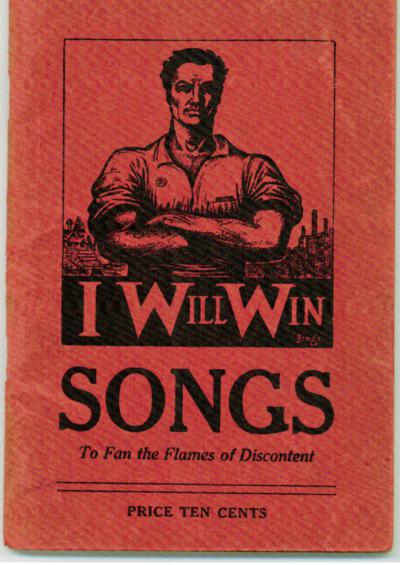


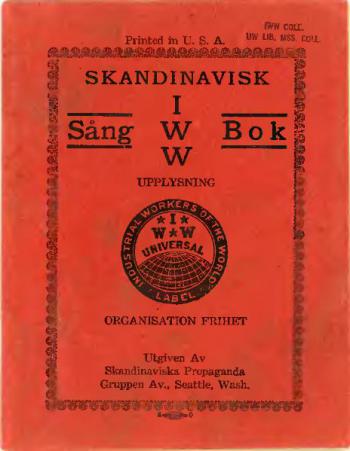
Parole di T-Bone Slim
Sulla melodia dell’allora molto popolare ragtime “They Go Wild, Simply Wild Over Me” (1917), di Joseph McCarthy e Fred Fisher.
Nell’edizione del 1920 del “Little Red Songbook”, il libretto di canti dell’Industrial Workers of The World (IWW), i cui membri erano appunto noti come “Wobblies”
Testo trovato su Political Folk Music Dot Org
Interpretata, tra gli altri, da Pete Seeger, Utah Phillips, David Rovics e Joe Glazer.
Come mai “tutti si scagliavano selvaggiamente” contro i militanti dell’IWW?
Perchè il suo cantore, lo svedese Joe Hill, fu assassinato dal Governo dell’Utah nel 1915?
Come mai nel 1916 la polizia di Everett, Washington, sparò sui wobblies in sciopero uccidendone 5?
Perchè il wobbly Frank Little fu barbaramente linciato in Montana nel 1917?
Come mai il wobbly Wesley Everest, veterano decorato della Grande Guerra, fu linciato a Centralia,... (continuer)